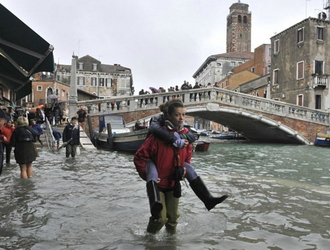
Humanity in deep waters: an illustration chosen by Steven Kurtz
Darker evenings – the autumn storms – All Saints’ Day – the season of Remembrance. All combine to make this a time of year when it’s easy to focus on the deep waters that are an inevitable part of the human condition. For, as Wray comments, Isaiah takes it for granted that we will meet with afflictions and trials before we have finished our course. “And they are mentioned in a way that will not suffer you to think lightly of them. ‘Waters’, many of them, and may be deep; ‘rivers’, rushing calamities that threaten to carry you away.”
But Isaiah 43 also tells us why we can hope. As Kurtz puts it: “How am I doing? I’ve come through deep waters, but I am not alone; I have reasons for hope.” Sussanto reminds us that in the ‘tough times’, whether this relates to financial difficulties, physical and psychological health problems, relationships, careers or education, God never leaves us, but faithfully continues to be with us, even in the darkest circumstances.
She goes on: “Any testing that we face will produce perseverance and will bear the ripe fruit. That is why it is important for us to respond properly to the difficult situations that are present in our lives.”
When through the deep waters I call thee to go,
The rivers of grief shall not thee overflow;
For I will be with thee, thy troubles to bless,
And sanctify to thee thy deepest distress.
This appeared in John Rippon’s “Selection of Hymns” in 1787. If you read the whole hymn, you may think it not perhaps the best poetry, but these are verses that have helped many in times of trial.

